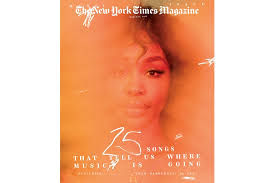CRIME "O" THE TIMES: Taste, Tweens & My Journey from Journey
- skaufman4
- Apr 29, 2018
- 4 min read
“If you want to know where music is going, ask an 11-year-old.”
The above sentence, the closing line in the introductory essay of the NY Times Magazine’s recent music issue, is one of the more over-blown claims in music criticism — a genre with a long history of hype and hysteria — I've read in a while. But hey, give it points: It got my attention. The author, Times Magazine story editor Nitsuh Abebe, seems to suggest that because 2007 had “the highest number of births in American history,” 11-year-olds have some kind of vision into the future of sound.
In the age of the internet, Tweens may have more consumer power than ever when it comes to music. They can click, like, retweet, Instagram and listen again and again and again on Spotify and other streaming services. Some, with access to their parents Amazon and iTunes accounts, have increased buying power, too. But that doesn’t mean they have the vocabulary or aesthetic muscle to articulate sonic trends. I’m all for empowering youth — go Florida high schoolers! But musical taste evolves. It is a journey.

Speaking of a journey, in 1978, I was 15 and living overseas in a place where new music was hard to come by. My pal Dave gave me a tape of the rock band from San Francisco called Journey. The tape was the band’s third album, Infinity. Dave, who grew up in the Midwest under the shadow of the influential Cleveland rock station WMMS, was the first guy to get ahold of Kiss and Cheap Trick records, which gave him instant cache in my eyes. So I played Infinity a lot, so much that 40 years later, I even remember two songs: “Wheel in the Sky” and “Lights.” I also remember the album cover was sort of cool in a sci-fi vibe, not unlike my favorite album cover (at the time) Boston by Boston.
At some point, probably when I discovered Dave thought disco sucked and collected beer cans even though we were too young to drink, I began to question his wisdom. I also began to question Journey. There was something about Steve Perry’s overwrought voice that didn’t rock for me. It was too theatrical. Kind of the opposite of singers I really liked — Mick Jagger, Bob Dylan, John Lennon. I noticed that there were no songs that made you want to dance, unlike, say songs by the Rolling Stones. In the middle of that year, I moved. At my new school, kids usually loved either Pink Floyd or disco. I liked both. I never saw Dave again and gradually stopped listening to Infinity. Eventually, I taped over it.
Thanks to 20-20 hindsight, I now believe Journey is a terrible band, something I won’t stop believing, no matter what anyone tells me. But for a brief moment in time, when I was young and impressionable, I was convinced they were cool. I think, at the time, Infinity had critical buzz. I remember seeing ads in Rolling Stone magazine telling me this was a good album. I guess awareness built, because Journey, eventually hit the big time, despite totally sucking.
It’s telling that the Times Magazine music coverage doesn’t actually have an article by an 11-year-old explaining the future (or the present) of pop music. What would that 11-year-old say? That rap will continue on its current sonic trajectory, getting sloppier and weirder until it summons the inspired, chaotic, atonality of tenor saxophonist Albert Ayler?
Probably not.
But Abebe may have been onto something. Unfortunately in the Magazine's urge to be timely and revelatory (a goal that has yet to be met), he gave 11-year-olds too much credit now, and not enough for the future. Today's tweens will shape the future of music, no question, as they get older. Their elders were 11 once, too. Meanwhile, in our artificial intelligence-obsessed world, it doesn’t seem like a huge stretch to foresee market researchers querying 11-year-olds about the music they like in data-driven-dystopia that will one day help “composers” “optimize” their work for various age segments.
That may sound crazy, but the influences at work in selling pop culture today are countless. We don’t even know what information about us triggers the ads that show up in our Facebook feed. Working against the idea of purely data and market-driven music, however, is the fact that much of what we listen to starts with friends and family. With personal recommendation — which is how I heard about Journey — and a strange, hard to decode thing called taste.
I credit Infinity with helping me become aware of what I liked and didn’t like about certain kinds of pop music. Understanding why a song works or doesn’t can be difficult at any age. It was hard to articulate at 15. I’m sure it would have been harder at 11 — which is a great volume setting, but not the ideal age for informed music criticism or insight.






















Comments